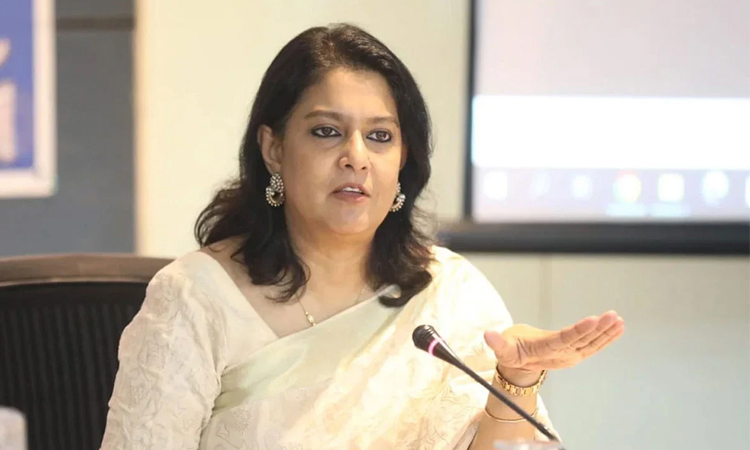News Flash
News Flash

DHAKA, Sept 16, 2025 (BSS) - The World Bank (WB) put emphasis on urgent and coordinated action to protect people, livelihoods and economy from escalating heat risks.
In a new report, the bank observed that with rising temperature, Bangladesh is facing physical and mental health risks, along with declining productivity leading to economic loss.
WB made the observation at the report on "An Unsustainable Life: The Impact of Heat on Health and the Economy of Bangladesh", which was revealed today at a hotel in the capital.
"The unprecedented warming has led to a tangible burden on the Bangladesh economy," the report said.
Syeda Rizwana Hasan, Adviser of the Ministry of Environment, Forest and Climate Change, attended the event as the chief guest while Prof. Dr. Md. Sayedur Rahman, Special Assistant of the Ministry of Health and Family Welfare, took part as the special guest.
Jean Pesme, Divisional Director for the World Bank Bangladesh and Bhutan, also shared his remarks while Dr. Feng Zhao, Practice Manager, South Asia Health Nutrition and Population Practice, the World Bank, delivered the welcome speech.
Iffat Mahmud, Senior Operations Officer, and Wameq A. Raza, Senior Health Specialist, the World Bank, gave the keynote presentations.
The study analysed national temperature and humidity trends from 1976 to 2023 and drew from a new two-round 2024 household survey of more than 16,000 people.
Since 1980, Bangladesh's maximum temperature has risen by 1.1oC, while the "feels like" temperature has surged by 4.5oC, triggering a rise in health issues such as diarrhea, persistent cough, respiratory diseases, and fatigue, it found. Heat waves have also caused mental health problems, including depression and anxiety.
In her speech, Syeda Rizwana Hasan urged all agencies to provide coordinated efforts to mitigate heat risks.
"When I took off responsibilities, we took a slogan- Zero Soil, for ensuring green environment everywhere," she added.
MORE/ASG/KUC/MRU/1431hrs
Jean Pesme said, "Extreme heat is not just a seasonal inconvenience. Its impact is far reaching as we see in Bangladesh that the rising temperature is affecting our health and productivity, and the country's prosperity."
"By building on its experience in climate adaptation and taking a coordinated approach across sectors, Bangladesh can address the heat wave impacts and maintain sustainable growth. The good news is that it can be done, as seen in countries like Singapore and others," he added.
According to the report, Bangladesh ranks second globally in exposure to elevated temperatures, and its capital, Dhaka's heat index increased about 65 percent higher than the national average. The economic toll is substantial.
In 2024, heat-related physical and mental health conditions led to a loss of 250 million workdays. This cost the economy up to $1.78 billion-around 0.4 percent of GDP in 2024.
Health impacts are stark. In summer, cases of diarrhea and persistent cough double compared to winter. Women are more vulnerable to heat-induced illness such as exhaustion and heat stroke.
Depression and anxiety increase with heat and are more prevalent in summer. Depression progressively increases with age, while anxiety peaks around 50-65 age group. Productivity loss, due to increased physical and mental health conditions, are higher in summer than in winter.
Iffat Mahmud said, "Our analysis shows measurable links between exposure to heat and poorer health outcomes, alongside substantial productivity losses. Like many other countries, Bangladesh faces real risks of lost human capital and productivity."
"Evidence-based policies and targeted investment for better adaptation measures can improve well-being and livelihoods and secure a healthy future tomorrow," he added.
The report recommended enhancing national preparedness through a multisectoral approach to dealing with heat waves and equipping health systems to manage heat-related illnesses.
Adaptation and preventive measures like creating urban green space and collecting granular and accurate weather and health data to inform decisions will help reduce exposure and risks.
Besides, international support and public and private financing for mitigating the impacts of global warming on Bangladesh will be important.